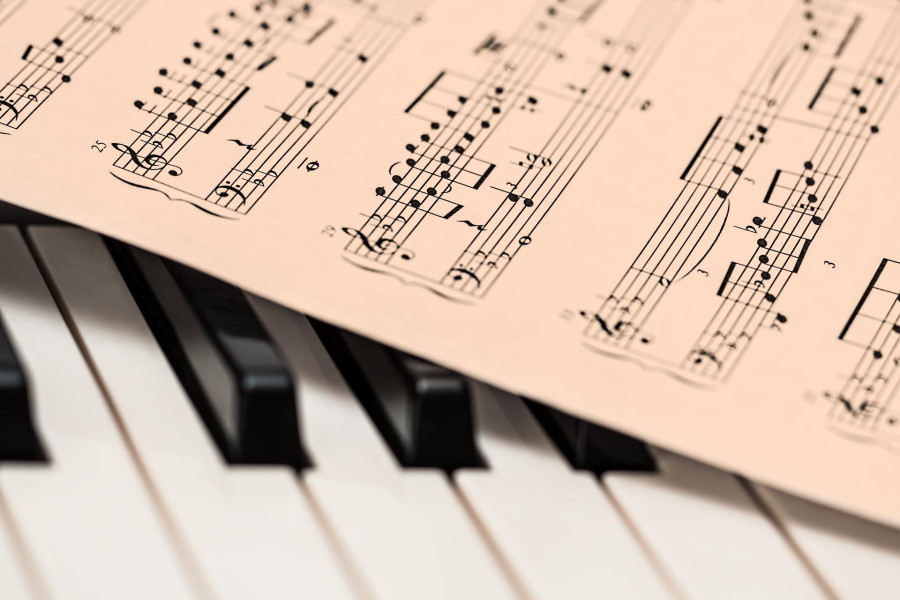What is Music Theory and Why is it So Valuable?
Music theory is the often-overlooked aspect of music education that focuses on the fundamentals. In short, music theory explains how music works. By understanding how music is written, as well as the importance of keys, scales, melody, harmony and more, students will be in the best position to excel at their instrument.
In this blog post, we’ll break down what music theory is and some of its key components. We’ll also discuss the popular debate on whether it dampens creativity or not, along with some of the key benefits to learning music theory, whether you’re a big-name performer or improviser from the comfort of your home.
What is Music Theory?
Music theory is the study of what music is and how it’s created. And regardless of which instrument you play; music theory applies across the board. With a good grasp of music theory, you’ll understand why some things sound good or bad, but you’ll also understand what it takes to compose music yourself.
To get started with music theory – like anything, start with the basics. At the earliest level of music theory, students are taught melody, harmony and rhythm. Students will probably encounter these concepts independently, as they aren’t difficult to grasp, but solidifying this knowledge early on is important.
- Melody
The melody is a sequence of notes combined with pitch and rhythm that creates the musically satisfying and most memorable aspects of the songs we love. Melodies are an extremely important part of any piece of music. Whether it’s a solo violin composition or pop chorus you sing along with in the car, melodies can be plucked from each.
- Harmony
The concept of harmony is a little trickier. Harmony is the relationship from more than one different sound at once. Learning why and how certain sounds mesh and contrast with others is fundamental in music theory, and is made easier by understanding octaves, chords, scales, and other basics.
- Rhythm
Rhythm refers to the patterns found in music, which takes shape using a collection of notes and rests. All music contains rhythm, even if it’s just your voice auditioning in the shower. In popular music, the rhythm is well known as the ‘beat’, or the part of the song you bob your head and tap the steering wheel to.
- Note identification
Another key reason beginner students should learn about music theory is it can really help note identification. There are lots of notes to learn, and theory can help students recall their name, sound and position on the instrument.
At more advanced levels, music theory expands on some of the same key learnings around melody, harmony and rhythm. Students will learn more complex scales and chords, and dive deeper into how and why certain harmonic structures and melodies sound better or worse in different scenarios.
The Debate: Does music theory dampen creativity?
There is an ongoing debate among musicians on the value of music theory. There is a camp that believes music theory is too prescriptive, and therefore has the ability to dampen creativity – especially among composers. Music theory contributes a set of rules and guidelines, which implies that there is a right and wrong way for things to be done. The worry is that by adhering strictly to the rules of music theory, you’ll sacrifice your creativity and ear for the music.
In reality it’s not music theory that restricts creativity, but people. The theory simply aims to explain how music is made, based on the experiences of people that came before us. We can use it guide our learning and composing process, but it doesn’t need to be the end all be all. After all, what sounds good to our ears now may be slightly different that what sounded good last century.
Why Should You Learn Music Theory?
Music theory is valuable for students at all levels, because it opens them to the world of how music is made. At the very least, it helps students understand their own creativity, while setting guardrails around the creative process. Someone with a strong grasp of music theory is free to look back on and apply their knowledge, or skirt the rules when they see fit.
Learning music theory is also beneficial when communicating with other musicians. It will help to be on the same page about basic definitions, but also how and why some music sounds better than others. By knowing certain things like chord sequence and key, you’ll be more valuable in creative settings that require collaboration.
Whether you’re taking lessons, teaching yourself, writing your own music or just improvising, music theory will definitely help you. It will never hurt. By wielding the knowledge of how music is made and why some things sound better or worse than others, you’ll put yourself in the best position to succeed.
Are you interested in music lessons for yourself or your children? Music Schools International – Langley is now accepting registrations. We offer group and private lessons for a wide range of instruments like piano, guitar, vocal, woodwind and flute. Plus, we’ve got fun classes for kids as young as 2 years old. Contact us today to learn more about our programs and lessons!
